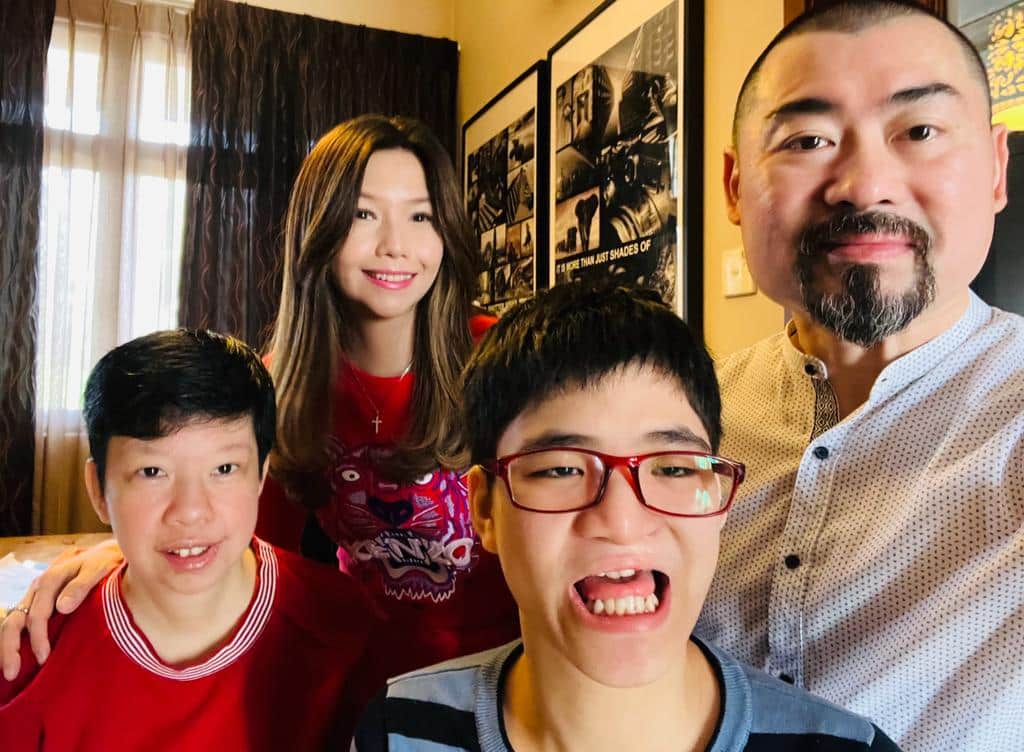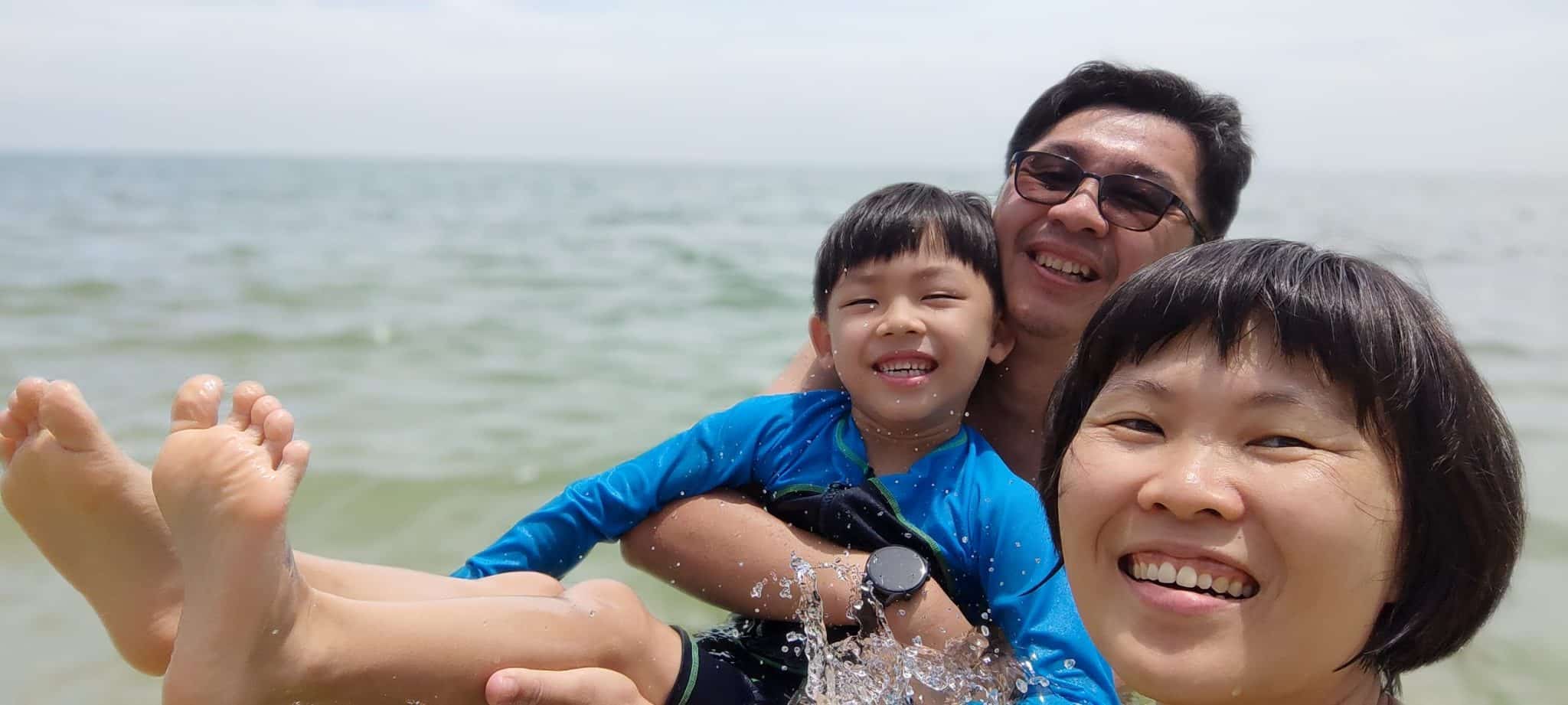“We are not ‘real’ hoteliers”: Yet Sabah family managed to keep all resort staff during COVID
by Gemma Koh // July 23, 2020, 5:34 pm
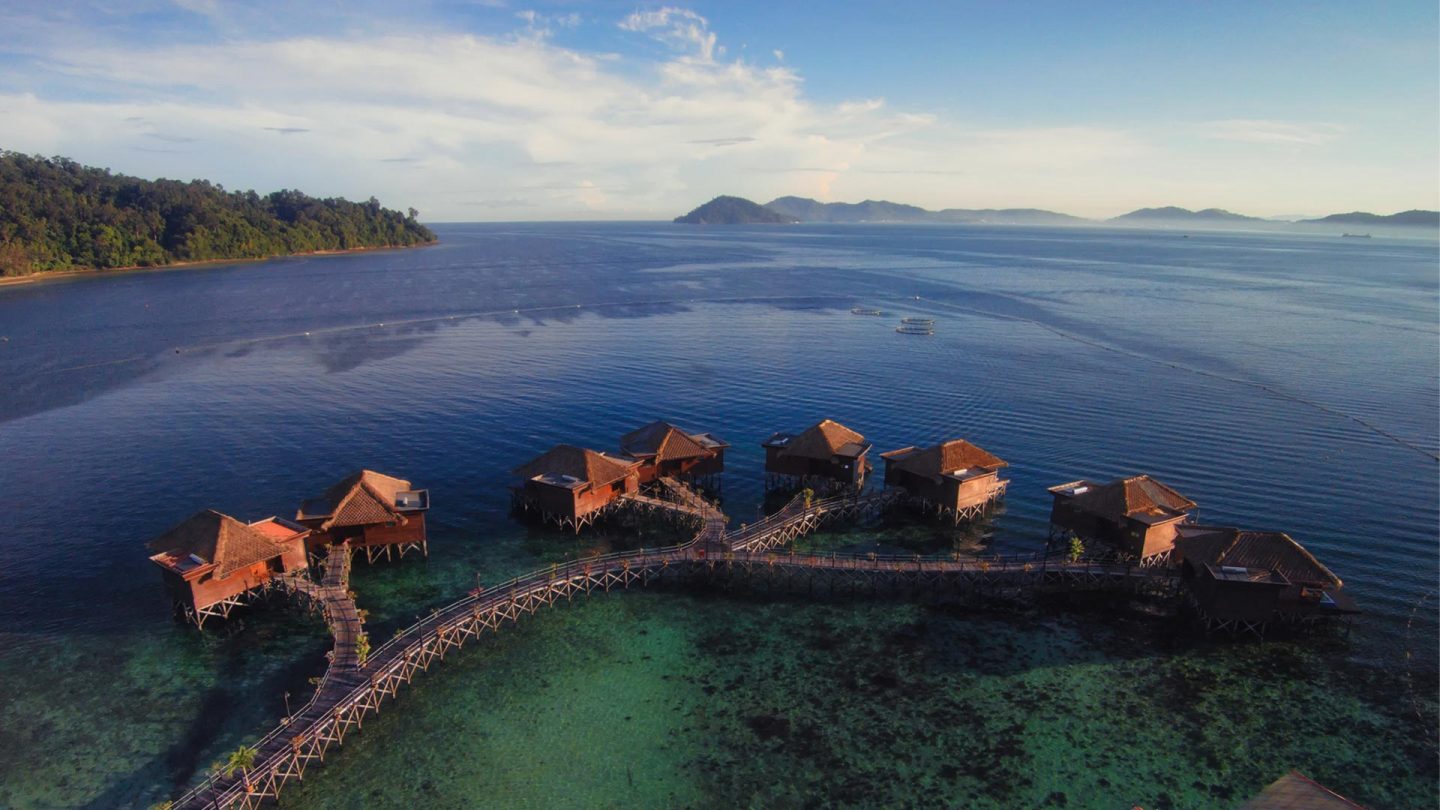
"The Lord has been a very big part of our journey," says hotelier Gillian Tan of Echo Resorts. Despite their resorts shutting down since March 18 when Malaysia's lockdown kicked in, they have managed to keep all their staff. Gayana Marine Resort reopens this weekend (July 24) to the domestic market. All photos courtesy of Gillian Tan & Echo Resorts.
When hiring new staff, Echo Resorts’ Gillian Tan, 36, tells them that her family “are not real hoteliers”.
When she returned from Australia to Sabah in 2008 to run the eco luxe Gayana Marine Resort, she didn’t know a RevPAR from an ADR. (They are travel industry acronyms for revenue per room and average daily rate).
Tan heads Echo Resorts as its owner representative (her parents are extremely private) and its sales & marketing director. Gayana is on an island within Sabah’s Tunku Abdul Rahman National Park.
“We want to train local kids, and use our properties as a gateway for them to grow.”
Instead of populating the payroll with expat staff as the “serious fancy hotels” were doing at the time, she hired enthusiastic locals and trained them up. She currently oversees some 400 staff across three island resorts; only the resort managers are expats.
Tan grew up around bulldozers and quarries as the family was in the business of constructing roads and buildings.
“I didn’t go to hotel school,” she said. “I told the Lord this was ultimately His show, so He would really need to show me how He wanted things done. I had no idea what was going on.”
Yet when the travel industry fell to the coronavirus, they managed to keep all staff by deploying them to the family’s other interests.
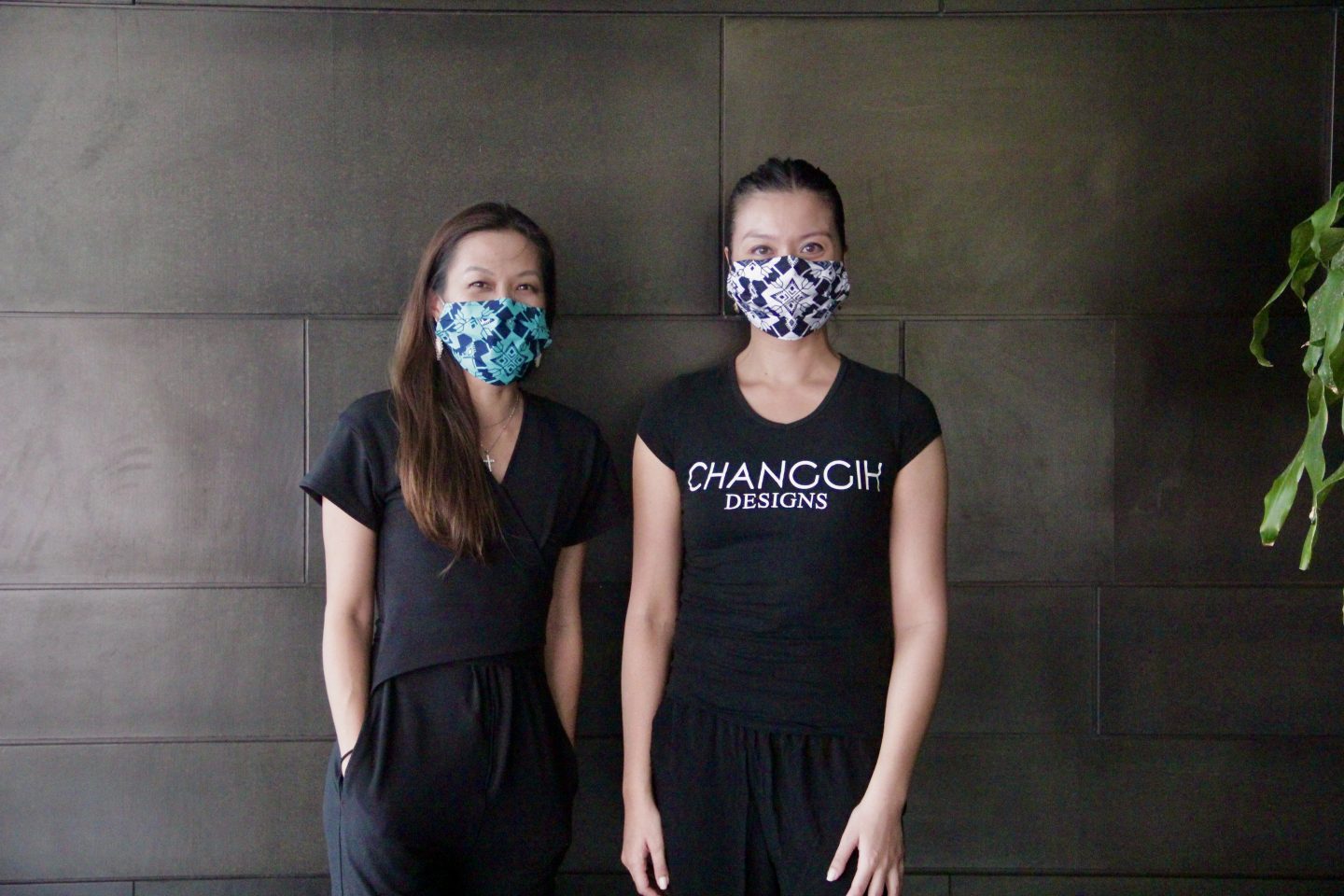
When Gayana reopens this Friday, guests will be gifted with reusuable masks like these worn by Gillian Tan of Echo Resorts (left) and Joanna Moss of social enterprise Changgih Designs, which engages artisans from villages around Sabah to make the masks.
Just as she did when she was starting out in the industry, Tan says: “The Lord is calling the shots here, and we are so grateful for it.”
Malaysia’s Movement Control Order (MCO), which kicked in on March 18 to stem the spread of the coronavirus, was just being eased when Salt&Light spoke with Tan in early June.
How did you batten down the hatches when COVID-19 struck?
We reacted as quickly and dynamically as we could. We felt it was our responsibility to look after those under our flag as much as possible. We managed to keep everyone employed. We distributed manpower across different available avenues: Some on the organic fish and vegetable farms, others sewing fabric masks in anticipation of when the resort doors would open.
I believe the Lord is guiding us in these uncertain times. There is so much we don’t know or understand, and we are just living out ‘Lord what do we do now?’
How did staff take to it?
We’ve always been big on cross training from the start. It’s inbuilt in the culture.
“We always say that this is one house with many rooms. Like any home, you do what needs to be done.”
Initially, there was a little bit of “that’s not my job”. In a traditional hotel, if you are in housekeeping, you’re only in housekeeping. But we are a small, family-run operation.
We put a lot of emphasis on family. We always say that this is one house with many rooms. Like any home, you do what needs to be done – washing the dishes or doing the laundry.
For instance, should housekeeping need to be a part of landscaping, they have the skill sets to be able to swap. There’s been a lot of training, but it’s been helpful in times like now when you have a skeleton staff on the island to maintain the property and make sure the generators are running, or when you are trying to move people around.
What has been a saving grace during this period?
Alu Alu Kitchen, our organic restaurant in Kota Kinabalu, remained opened throughout the MCO period. We were able to shift a lot of staff from the resort on a rotation basis so that they could help out in the kitchen, help with deliveries.
It helped keep everyone employed.
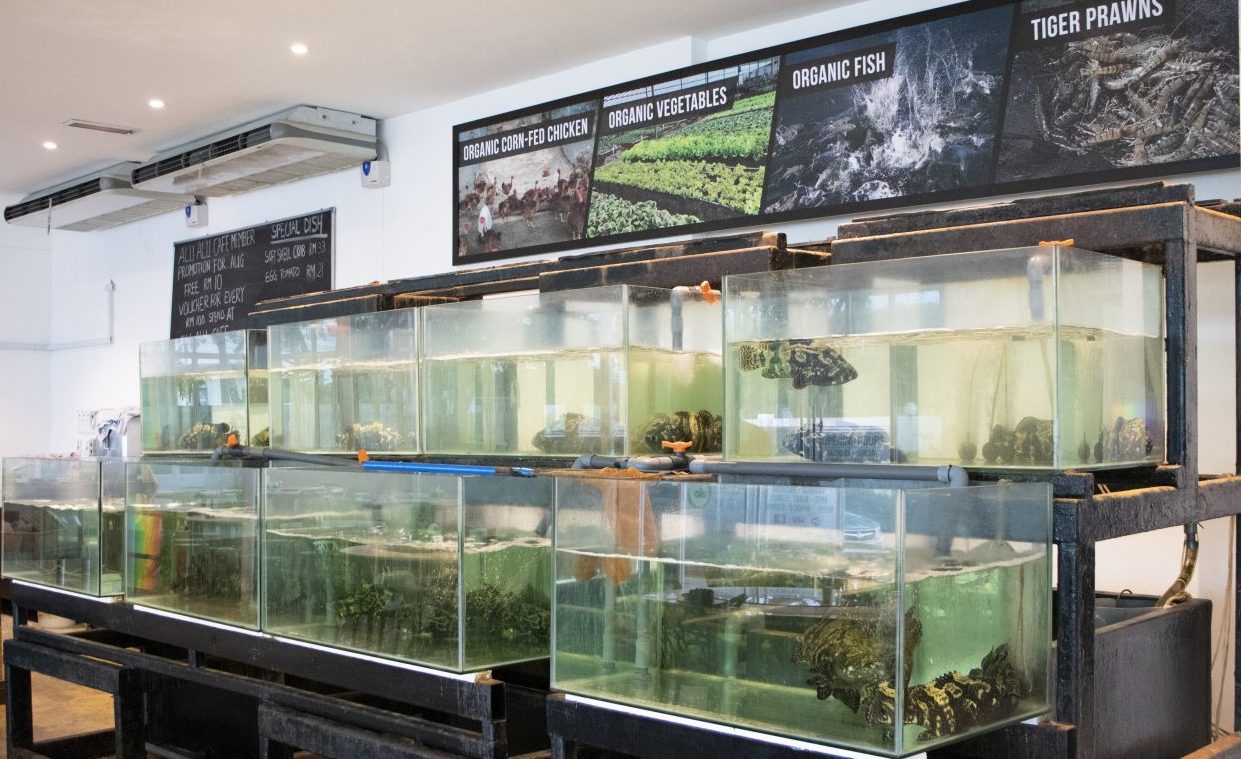
Home orders placed at Alu Alu Kitchen have increased significantly since February.
One customer placed orders for lunch and dinner every day since the lockdown was announced. Built into his house is an area with a roof and a hook. When you arrive with your delivery, you text him that the food is here. There has been no contact with him, and we have no idea what he looks like.
One customer placed orders for lunch and dinner every day since the lockdown was announced.
Alu Alu Kitchen been a good outlet for the organic produce from our fish and vegetable farms. Business at the farms have more than doubled.
Pre-COVID, there was a perception that “wow, organic vegetables are so expensive, do we really need organic vegetables?” But now, there is a greater emphasis on health, well-being and nutrients.
The lockdown saw a lot of younger people, looking after their older parents and grandparents, going for organic produce. Also, a lot more people were cooking at home, and coming to buy fish, prawns and vegetables from us. Especially since the fish markets were closed during the lockdown.
What else did you do during the COVID downtime?
With our consultant from the US, we had to basically rewrite all of our SOPs (standard operating procedures) from scratch because all the standards that run a hotel prior to COVID-19 are irrelevant.
They affect the small things like presenting cutlery and towels, and the life vests on boats that take guests to the island.
The next big challenge was training staff, and reminding them of the procedures like when to wash their hands, and what to do if a guest refuses to wear a mask.
We are ready to bring our best to the table for when business resumes.
With fewer boats on the waters, the fish are more abundant. Our staff on the island spotted, for the first time, hornbills sand bathing. They were ruffling their feathers, grooming themselves in the sand. They also saw pangolins and the shy proboscis monkeys.
Tell us about your family’s passion for rehabilitating the surrounding waters.
Dad has always been passionate about the environment and the sea. The family invested first in the Marine Ecology Research Centre (MERC) attached to Gayana. And then later, we decided that we needed the hotels to supply the income to drive it.
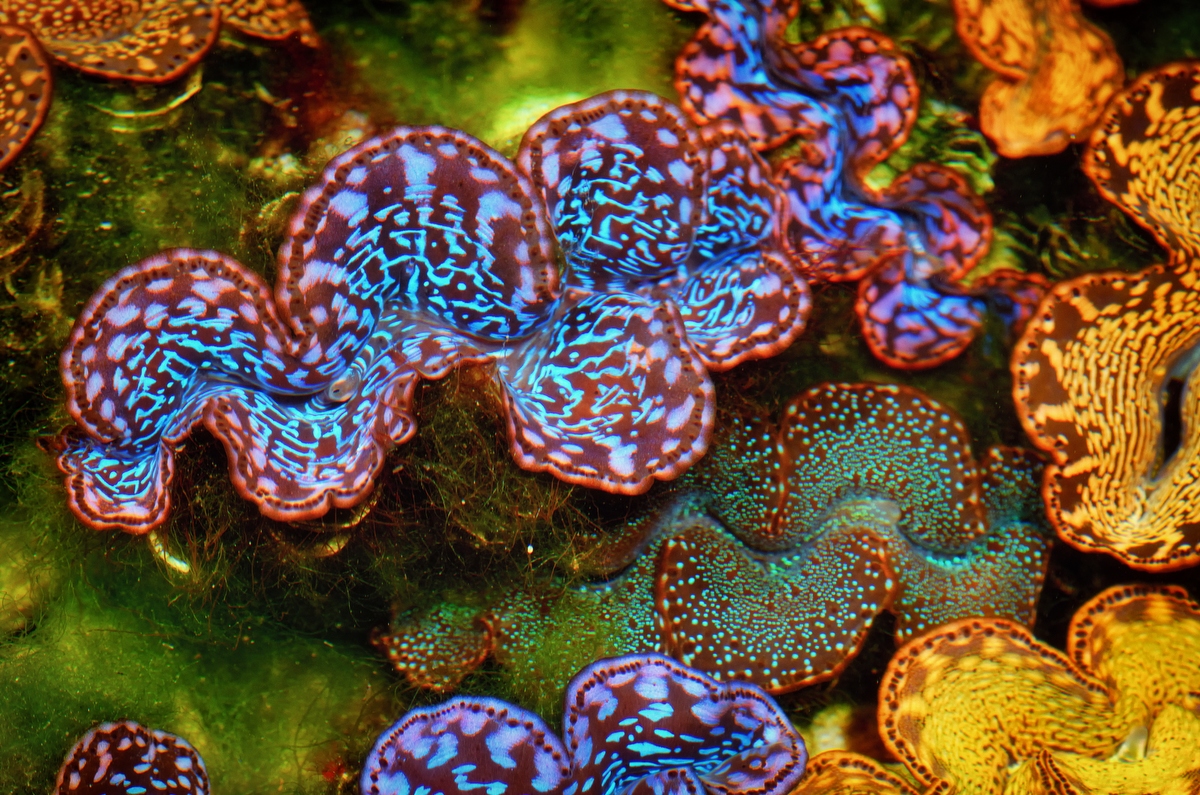
The Marine Ecology Research Centre (MERC) propagates giant clams (above), seahorses and coral for release.
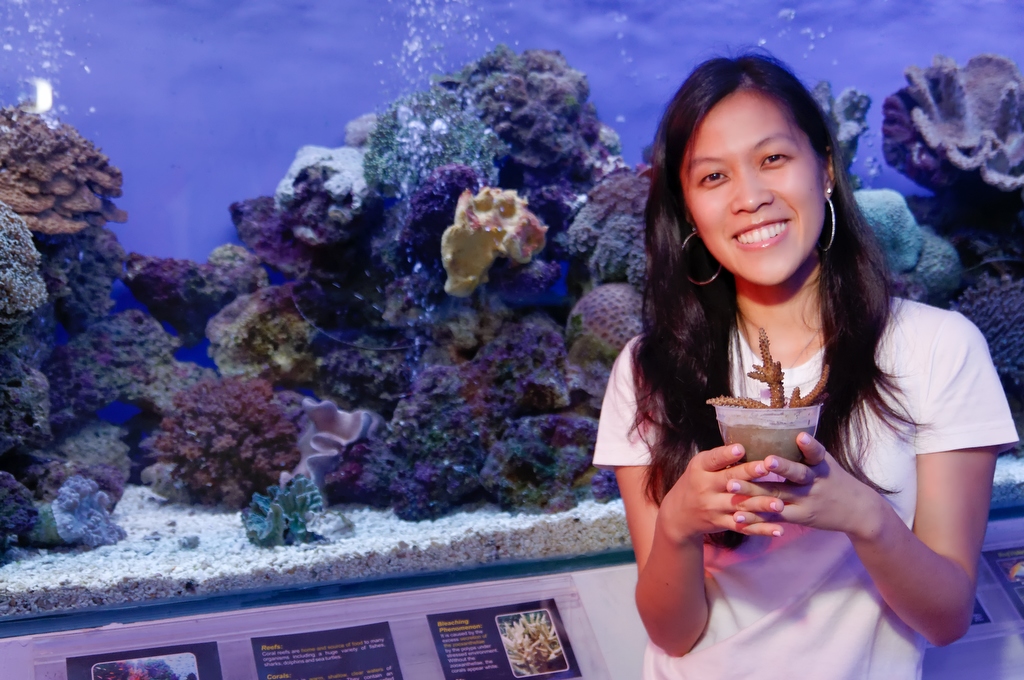
Visitors can be a marine biologist for a day or adopt a coral (as Gillian is holding). Malaysia’s Ministry of Tourism recognised MERC’s conservation efforts with an award in 2008-2009.
I remember the first time Dad took me to Gayana some 15 years ago, he was really excited about the giant clam facility. “Girl, look at this, look at that”. All I could see was that the place needed a lot of work.
We hired biologists and worked with professors from different universities. We expanded the marine centre.
Gayana has all seven type of giant clams found in tropical waters. Initially, we could only get a couple to spawn, so it’s been a long journey of learning how each clam is different.
Giant clams are not the sexiest things in the world. People would say “Oh, I love turtles”. But no one would say that about a clam.
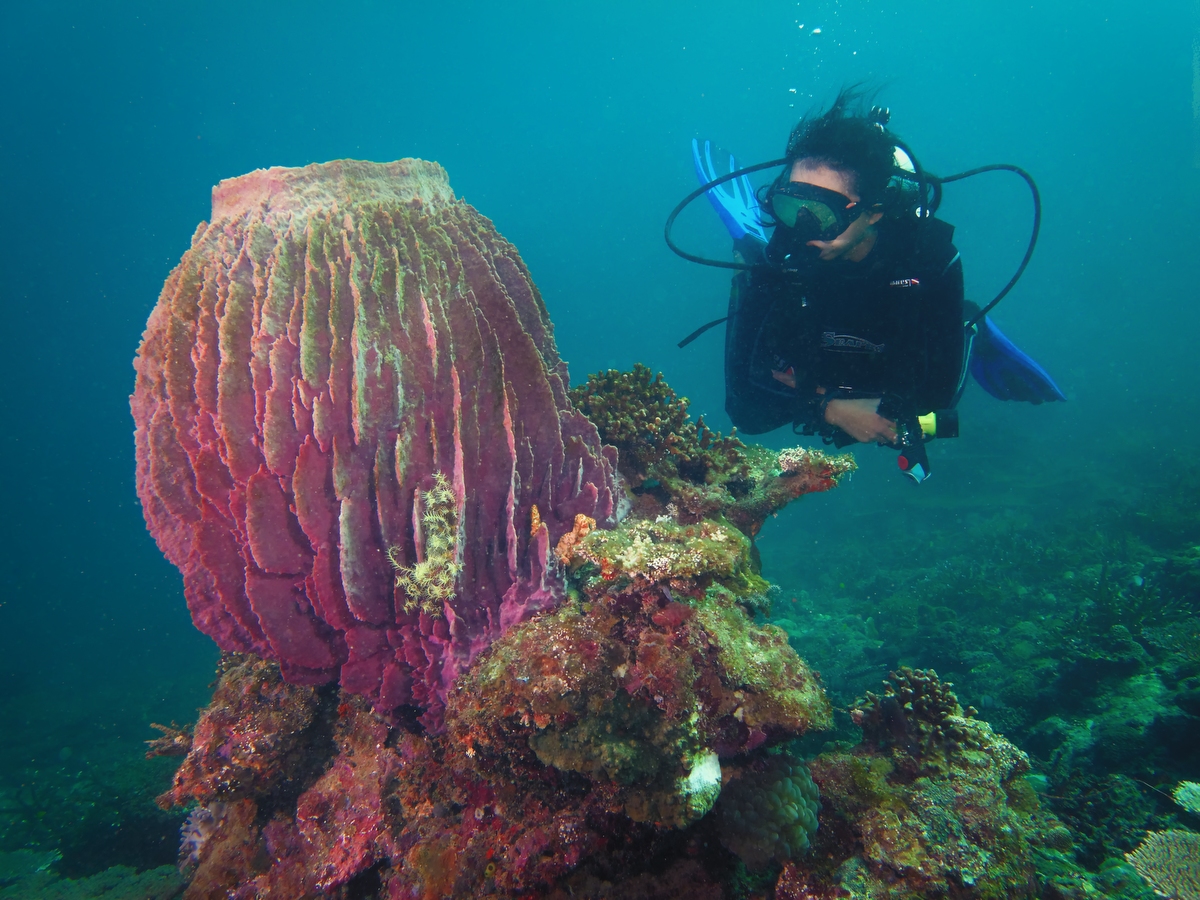
Guests will be able to explore the waters around Gayana Marine Resort when the resort reopens.
It takes about two years for baby clams to grow to the size of a tennis ball. But these guys are so important for the marine ecosystem. More and more people are appreciating that the clam is like the liver of the ocean. It cleans the water, helps with the balance.
When we first took over, the water clarity was terrible, there were no fish.
We’ve created a safe haven, and the marine life is coming back, including trevally fish and turtles. Once a year, we have whale sharks coming though.
How were you enticed back from Australia to run Gayana?
I was having a good time in Sydney. I lived near the beach, I was teaching in university and still studying at that time. I was living the café life and it was great. I didn’t want to go back to living with my parents.
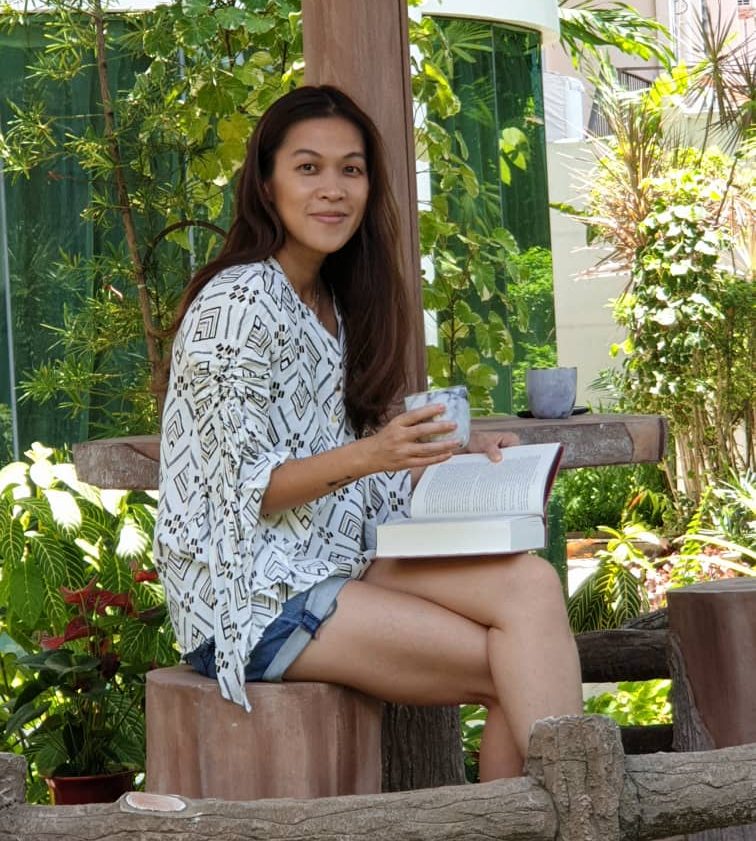
The hotelier traded wearing shorts in Sydney for wearing shorts in Sabah.
Then Dad called and he was very smart about it. He said: “Hey, I’ve just bought over this place, Gayana, and I need help with marketing. So why don’t you come back for six months, help me get it going? Then you can go back and finish your studies. I was very young at that time and should have known that six months wasn’t enough to do all that.
I felt the Lord say “come home” and I was obedient. I didn’t say “Yes, send me”. But probably more “Okay if I go, make sure you bless me along the way.”
The first thing I was tasked with was to hire staff.
How did a non-hotelier go about doing that?
When we acquired Gayana and Bungaraya Island Resort (on the same island) shortly after, we wanted to do things differently.
“I would tell God: ‘I’m only standing here. This is your show.’ It’s really: He leads, we follow.”
We were among the first to say: “Look, we want to train local kids, put them in positions where they will really flourish and really use our properties as a gateway for them to grow.”
We did a big recruitment drive and went into villages and were hiring people who were enthusiastic. So that’s why if you come to the resort and walk around, you will find that the staff are very colourful, and that everyone is glad to be there.
There were some staff who couldn’t speak English when they first joined us. And now they are training the new kids who are coming in.
We are blessed to work with the local community, and are in the position to create opportunities and training for them.
How do you show staff they are family?
I’m not an evangelist, but the family is very transparent about what we believe, and what we do. And because we run the resort very much like a family, that line between professional and “okay, these are people I need to look after” is very blurred.
We didn’t want him to feel that he had less to offer. So we put him in charge of more things.
Head Chef Ah Keong runs our Chinese restaurants and Alu Alu Kitchen. He is really good at the wok. Six months after he joined us, he was involved in a car accident that left him paralysed from the waist down.
We bought a wheelchair from Singapore that would make it easy for him to move around. My parents were very strict with him and made sure he continued to come to work – more for his mind. He had five kids including a baby who was a few months old. We redid all our kitchens so that the counters were lowered, and we measured the corridors to fit his wheelchair.
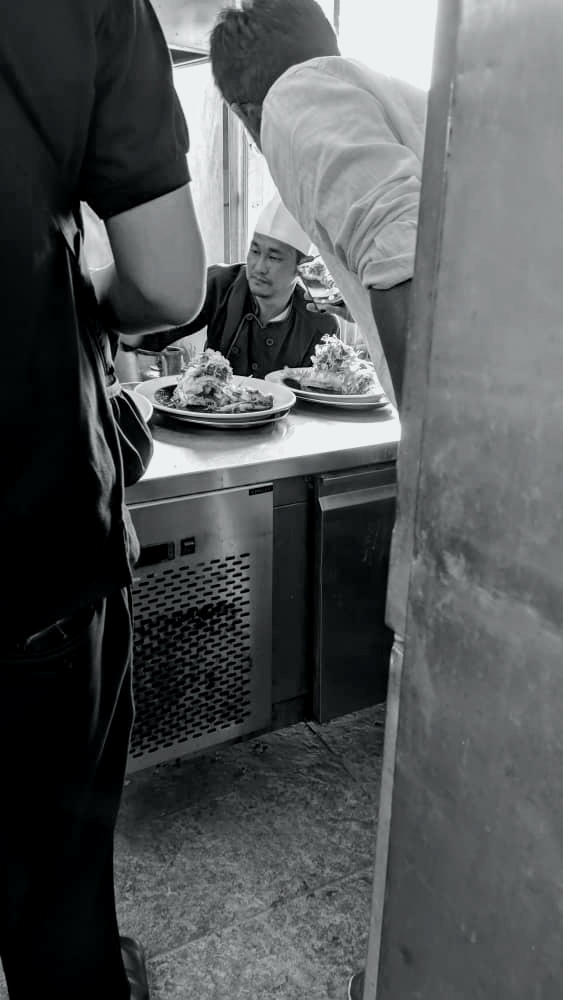
Head Chef Ah Keong is a celebrity of sorts with travel agents and guests wanting to meet him.
The staff from various departments made sure he came to work – lifting him and his wheelchair into the boat and off the boat. It pulled the team closer together.
He’s the reason why now our resorts are wheelchair friendly.
He’s very shy and in the beginning couldn’t speak English at all. But I’ve pushed him out front and introduced him to people.
We didn’t want him to feel that he had less to offer. So we did it in reverse and put him in charge of more things to give him ownership and to keep him focused.
The church has been helpful to him and his family. They have converted to Christianity.
What kind of miracles did you see?
I felt the Lord would bless the resort because he brought me back. I would tell Him: “I’m only standing here. This is your show.” It’s really: He leads, we follow.
In the very beginning, when we first opened the resorts, it was when the bookings would come through the fax machine. So when the sheets came out, you’d see how many bookings you had.
For quite a while, we had no bookings.
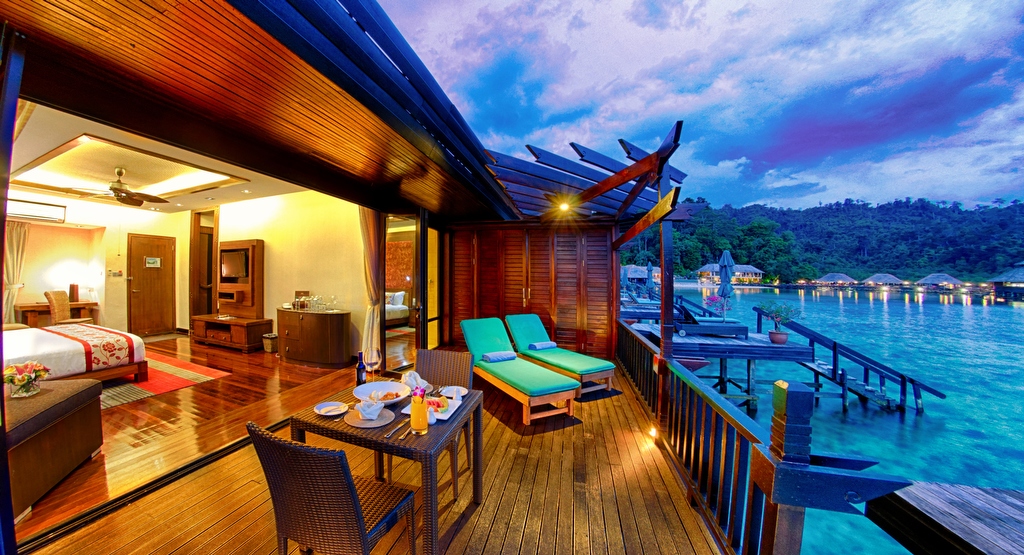
Ocean Villa at Gayana Marine Resort. Gillian tells her staff: “We’re only here because of the doors that the Lord has opened to us.”
We didn’t know what we were doing. But we just had a feeling that God was going to bless this place. We weren’t sure how.
I had this young guy who was in my reservations department. He said: “Bookings are not coming in, boss. I think we need to pray over the booking sheet.”
The Lord has been a very big part of everything that we’re about, everything we’ve been privileged to do.
We weren’t sure if that was biblical, if should we be doing that. But we were desperate and we needed God to bless this place.
So that’s what we did.
We stood together as a team. We laid hands on the booking sheet. We prayed over it. We prayed over the guests that were coming.
We thanked the Lord for the blessings that we were not seeing yet but believed would come.
For a while, nothing changed.
But eventually the bookings started to come in. The resorts started to grow, we started to get busier.
And to this day, when you talk to anybody from our reservations team, everybody remembers the day that we prayed over the booking sheet.
It’s not hocus pocus. When you give praise where praise is due. The Lord will bless it.
The Lord has been a very big part of our journey. A very big part of everything that we’re about, everything that we’ve been privileged to do.
How else have you seen the fingerprints of God in your business?
The first time I went for a trade show, I literally felt like the kid that got fished off the beach.
I was trying to lead an army of kids who didn’t really know how to do what they are doing, and I myself didn’t know what I was supposed to be doing on a global front.
The Lord has been really good at putting me in touch with people who have taught me along the way, bringing people to work with us.
The Preferred Hotel Group has been really monumental to us.
“A young guy in my reservations department said: ‘I think we need to pray over the booking sheet.’”
I’m not sure why, but senior people maybe took pity on this little kid from Borneo, took me under their wing and taught me everything I needed to know. One lady sat me down before we went into a press conference and taught me the terms. A rack rate is … and ADR is … she gave me a really simplified version that I could grasp.
At big trade shows, Preferred has said: “Come, I need you to meet this person, that person.”
Most of the time, I only realised who “that person” was after he’d left. It was a guy who runs half a million travel agents.
I am thankful for the beautiful mentors who quite literally paused their business to show me the ropes.
I tell my staff: “We’re only here because of the doors that the Lord has opened to us.” It’s very important to maintain that grateful stance.
I used to be a little bit conscious on whether or not my social media posts were too churchy, but God has played such a huge role in our everyday, it was not possible to mention our progress without mentioning where our Help came from.
My posts are usually little honest quips, giving glory where glory is due and so far they have been received really well by my guests and colleagues within the industry. Faith connects people.
“Is our business helping people or oppressing them?”: Founder of zero waste online grocer
We are an independent, non-profit organisation that relies on the generosity of our readers, such as yourself, to continue serving the kingdom. Every dollar donated goes directly back into our editorial coverage.
Would you consider partnering with us in our kingdom work by supporting us financially, either as a one-off donation, or a recurring pledge?
Support Salt&Light